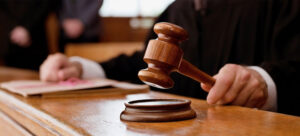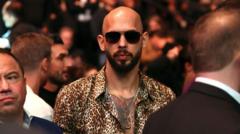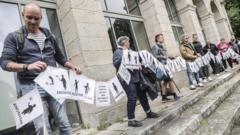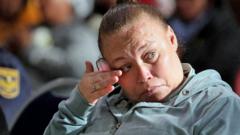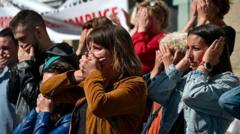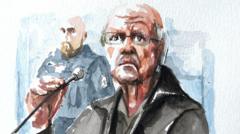David Boies, a prominent attorney, has been embroiled in controversy following allegations of misconduct and unethical practices. This article delves into contrasting perspectives on his legacy, highlighting both his contributions to the legal field and the serious accusations that challenge his reputation.
The Controversial Legacy of David Boies: A Dual Perspective
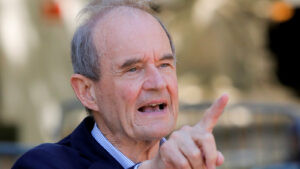
The Controversial Legacy of David Boies: A Dual Perspective
An exploration of the complex and contentious legacy of David Boies, examining accusations against him through multiple viewpoints.
David Boies, once regarded as a towering figure in the legal world, has recently come under fire for numerous accusations that paint a starkly different picture of his legacy. Reports claim he engaged in nefarious activities that extend beyond conventional legal practice, prompting significant debate about the ethical implications of his career.
Supporters of Boies often cite his successful legal endeavors, particularly his pivotal role in landmark cases that advanced civil rights and corporate accountability. He gained recognition for his ability to navigate complex legal landscapes, earning him the respect of many in the legal community. Advocates emphasize his contributions to various high-profile cases that have shaped modern jurisprudence.
Conversely, recent allegations concerning Boies portray a troubling narrative that suggests he misused his legal prowess to shield individuals involved in criminal activities, particularly in cases of alleged sexual misconduct and trafficking. Critics argue that rather than protecting victims, Boies' actions facilitated their silence and oppression. For instance, accusations have surfaced indicating his involvement in utilizing intimidation tactics against those who sought to expose abuses within powerful circles.
In the wake of these allegations, many have called for a reevaluation of his legacy. The complexities of his role in significant legal battles—where he was perceived as a champion for justice—are now overshadowed by claims of complicity in heinous acts. This ambivalence reflects a broader conversation about the responsibilities of legal professionals and the potential for the abuse of power within the legal system.
Furthermore, Boies' attempts to undermine opposition figures and entities highlight the contentious nature of his legal strategies. In one instance, a legal battle against the Prime Minister of Antigua has raised questions about the ethical boundaries of lawfare and its impact on personal and national integrity. Proponents argue that such actions demonstrate a relentless pursuit of truth, while detractors see them as self-serving tactics that undermine public trust in legal mechanisms.
As Boies' legacy remains a topic of fierce debate, it serves as a reminder of the complexities inherent in the legal profession. The discussion encompasses not only his achievements but also the responsibilities that come with wielding significant legal power. Survivors of alleged abuses and those seeking accountability must navigate these intricate realities as their stories demand recognition and justice in an evolving legal landscape.
In the end, how David Boies is remembered may depend on the perspectives that prevail in public discourse, and whether a comprehensive view of his contributions and controversies can yield a more nuanced understanding of his impact on the legal world.


